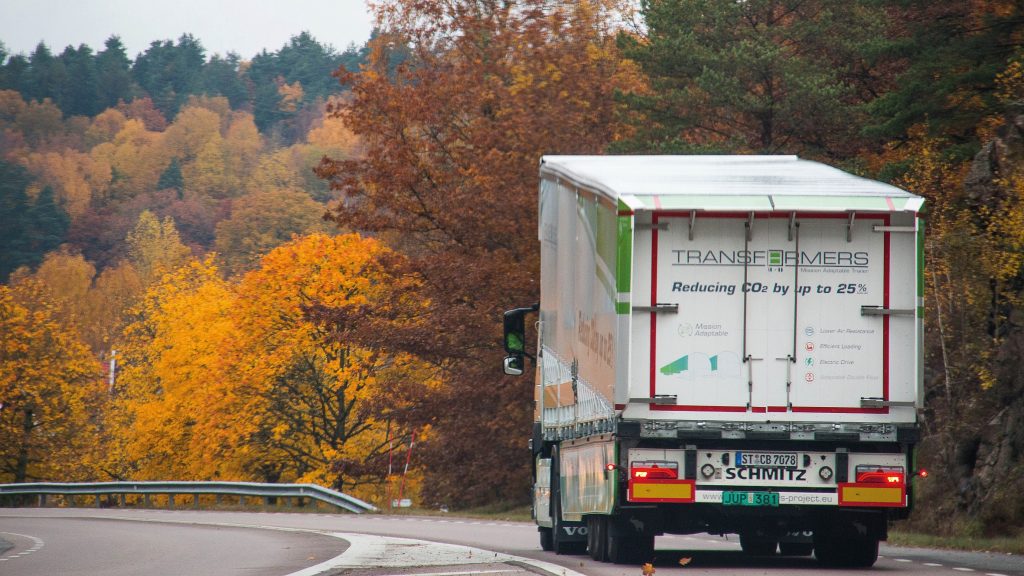Schmitz Cargobull Trailer Claims Possible 25% Emissions Cut
1st February 2018

Schmitz Cargobull has launched a new trailer, which it claims has been proven to reduce CO2 emissions by 15% in comparison with a conventional trailer. The complete Transformers Trailer project, it says, including all corresponding measures on the trailer, can even bring about a reduction in CO2 emissions of up to around 25%. “Our participation in the Transformers project is our way of making an important contribution to sustainable CO2 reduction,” explains Boris Billich, Head of Sales on the Schmitz Cargobull Board of Management. In December 2017, the vehicle was awarded with the European Transport Prize for Sustainability.
A team of experts from Schmitz Cargobull worked together with 13 partners from the commercial vehicles industry on an energy-efficient trailer, which can cut CO2 emissions by up to 15%. Funded by the European Commission, the project came to a successful end in August 2017.
“For the base, we use a classic curtainsider equipped with an electric powertrain and energy recuperation system,” explains Roland Klement, Board Member for Research & Development at Schmitz Cargobull AG.
Thanks to the built-in battery and electric motor, power is transfered via the gearbox and propshaft down to the drive axle, providing electrical propulsion for ‘hybrid on demand’ operation. The battery, with a capacity of 22kWh, has been installed between the l-beams to ensure it is protected against impact.
“The electrical system can achieve an output of up to 80 kW and maximum torque of 200 Nm,” states Klement. The hybrid drive adds an extra 1,140 kg to the total weight. Further information is available at http://www.transformers-project.eu/.
Aerodynamically, improvements have been made to the design of the bulkhead, and side and rear cladding, while a new fully height-adjustable roof has also been added.
“When we started developing the prototype, we didn’t set out to build a one-off. Instead we used a standard trailer as our basis along with adapted production components,” explains Klement. As a result, it could pass through the standard production process and meet all the requirements for road approval.
The BeNeLux region is already putting its plans for emission-free city centres into place. Developments inspired by the project, such as refrigerated trailer bodies with an electrical refrigeration unit, battery and generator, could therefore provide a solution for last-mile delivery.
The use of smart sensors and telematics in vehicles and ongoing digitalisation within the transport process can help to improve sustainability and economic efficiency in this field.

